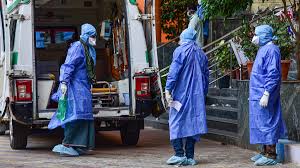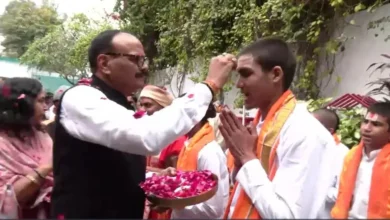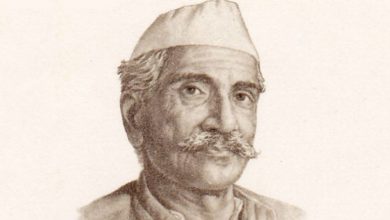Is India prepared for the worst pandemic scene?
Is India prepared for the worst pandemic scene? At the initial stage of the outbreak, it was believed that the system in place was sufficient to contain the pandemic. Lockdown and other measures were announced while anticipating it to be the right decision at that point of time. But today, when we see number of cases multiplying on each passing day and setting a new record everyday all we can say that it is not enough and a lot more is required to be done.
question mark on healthcare system
The outbreak has put serious question mark on healthcare system of even the most advanced countries like US and other developed nations. For India, no one can say for sure how it will manage when the pandemic would be at its peak, the reflections of which are visible now from one record number of cases to another. India is now on third place in terms of number of cases and deaths after Brazil and America. Is India therefore ready for unprecedented rise in cases? We wish that India can contain the virus but it should also be ready for the worst?
alarm bell
With more than 78,000 cases in a single day, it has raised the alarm bell for every stakeholder. The government should think afresh about healthcare infrastructure in place, medical emergency preparedness and the support system. No doubt, the world at large is struggling hard to contain the virus. And therefore, in India, the Central and the state governments along with policy makers will have to put their heads together to address the crisis pragmatically without adding any political overtones.
The big question
With the number of cases rising at an alarming rate the challenges have no doubt increased manifold and therefore all should remain alert to combat the magnitude of the crisis that has been imagined from time to time. The big question: What really went wrong with India’s healthcare system? Why the measures of policy makers and government did not match with the nature of the crisis? Notably, the ministry of health and family welfare spent Rs 3,948 crore in May this year as compared to Rs 7,816 crore in the corresponding month of the previous year. Is it not surprising to note when we are fighting the pandemic?
According to Dr. Meena Mishra, Chairperson of Brian Behaviour Research Foundation of India, “There have been strenuous and rapid efforts at increasing beds and testing during the lockdown and the efforts have been fruitful to certain extent. Government has been focusing on prevention and rightly so. But the facilities in place for treatment of moderate to severe cases in terms of numbers are majorly lagging and any unprecedented rise in moderate to severe cases will blatantly expose the reality of our health infrastructure- manpower and technical both.”
Covid-19 has exposed weaknesses in systems
However, Siddhi Trivedi, CEO Beowulf Proof Works said, “Covid-19 has exposed weaknesses in systems and processes not only in India but in the entire world. Therefore it is essential to identify the need to ensure sufficient equipment is available; provide extra financial resources; expand insurance coverage; recruit more healthcare staff and arrange more hospital beds and isolation wards. It’s obvious why India has failed to contain the virus; the country has neglected to provide healthcare capacity for the 50 million households who are pushed into poverty due to prohibitive healthcare costs. The poorest have been left stranded to fend for themselves faced with starvation and left vulnerable to the virus with no access to healthcare support.”
“The fact that social determinants of health play key role in equity, all efforts should be made for multi-stakeholder engagement in design and delivery of an inclusive and pluralistic Universal Healthcare Cover (UHC)-driven healthcare system. A country that is blessed with excellent technology capability, it’s disappointing to note how it has failed to harness digital health tools to predict, analyse, plan and optimize healthcare provision for those most at risk. If the country doesn’t contain the virus, the pandemic will continue to erode its economic growth that may take decades to recover,” said the CEO of Beowulf Proof Works.
“India for too long has allowed the private health sector to grow with little regulation. The lack of alignment between the public and private sectors has been clearly exposed with COVID-19 testing and treatment in India. The cost of COVID-19 testing in the private sector is non-affordable to many. Private hospitals have been reluctant or unable to deal with patients with COVID-19, resulting in a huge crisis in the management of COVID and non-COVID-19 patients in the country,” said Dr. M Wasim Ghori, Fellow of the Royal Society of Public Health, London and executive Director of Medical and Health Information Management Association.
Ghori added, “The country needs all hands on deck during and after this crisis – both public and private sectors must work together and deliver universal health coverage for all citizens. India’s health system strengthening efforts can no longer afford to trudge along at its previous glacial pace. The onus of governance rests with the government, which needs to set standards, invest resources, ensure quality and strategically purchase services from the private sector, as needed. We should channelize this unprecedented attention on healthcare and direct the energy towards developing a stronger, sustainable, reliable health system for India.”





